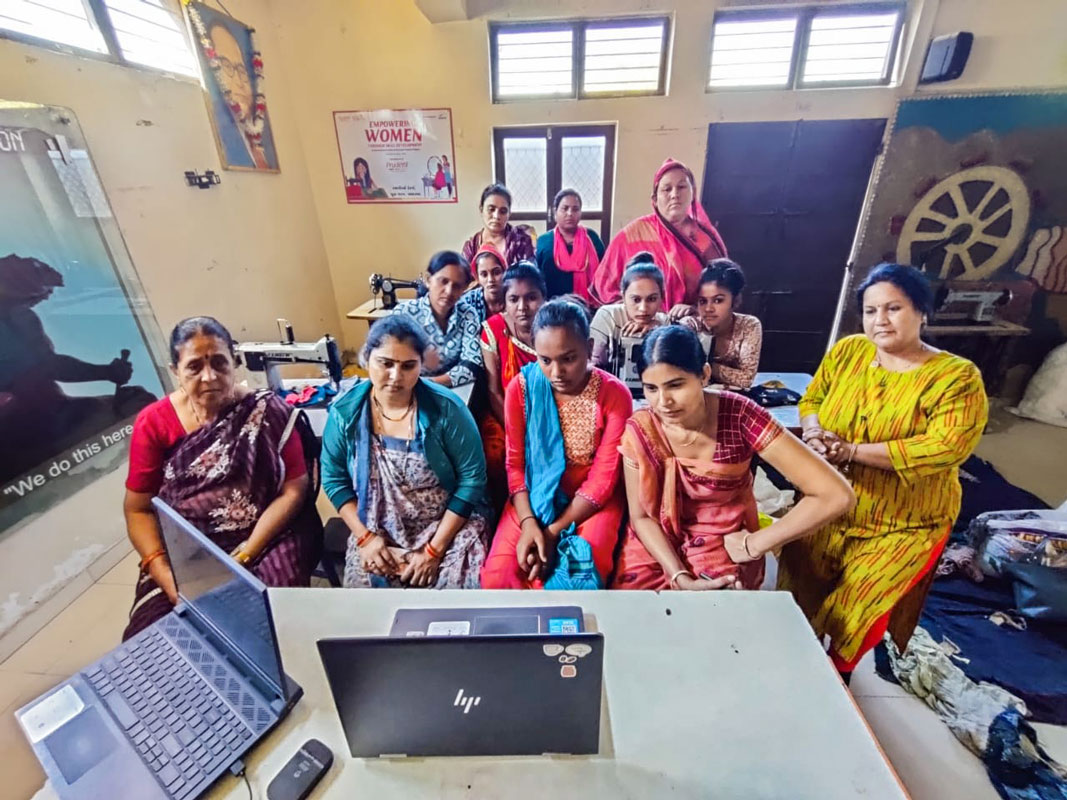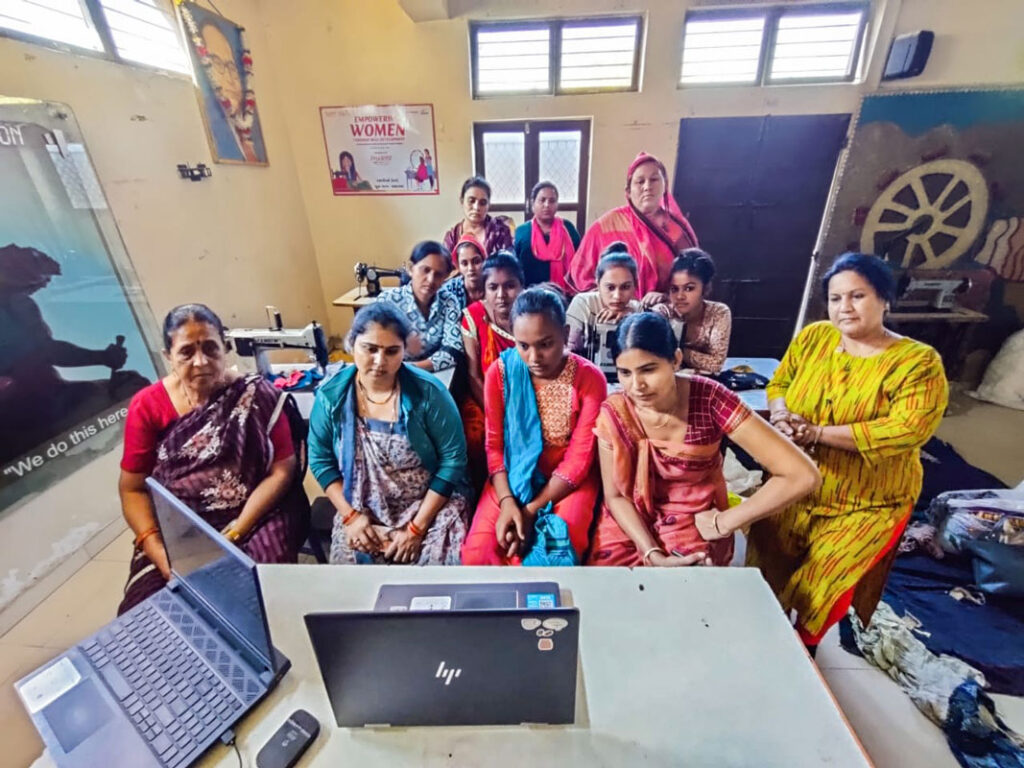RC Ahmedabad Greater, RI district 3054, has set a great example of collaboration between a Rotary club, RCC Jeevantirth sponsored by it, and another Rotary e-club in RID 3132, Maharashtra — Rotary E-Club of Empowering Youth, Ahmednagar, to spearhead an MHM programme. This well-structured and well-coordinated programme hopes to enhance the livelihood of over 2,000 female ragpickers and other women living in a prominent slum area of Ahmedabad.

Giving details of the project, president-elect of RC Ahmedabad Greater Arup Sinha said the moving spirit of this project is an ophthalmologist Dr Bindu Shirsath, an honorary member of the Ahmednagar e-club, which conducted a hybrid session with RCC Jeevantirth, that was coordinated by him, as the vice-chair, environment, and club advisor for RCC Jeevantirth.
Jeevantirth Foundation, an NGO in Gujarat, has a phenomenal track record in working for social causes. One of its founding members is Rajendra Purohit (popularly known as Rajubhai), “an honorary member of our club, and the NGO works in the areas of education, creating livelihoods, and protecting the environment. He was a highly successful professor, and both he and his wife Deepti, a successful banker, quit their jobs to run Jeevantirth, which has got big funding support from the CSR funds of corporates such as United Phosphorus, one of whose directors is PRIP Kalyan Banerjee,” says Sinha.
Both the husband and wife were deeply influenced by J P Narayan and Vinoba Bhave respectively. The Jeevantirth Foundation also has a partnership with the Ministry of Aayush, GoI, for an agricultural initiative.
Under this project, Sinha says, the 2,000 women ragpickers and slum dwellers of Ramapirno Tekro, Juna Vadaj, Ahmedabad, said to be the biggest slum of Gujarat, who are already beneficiaries of Jeevantirth, will now get an opportunity to enhance their livelihood by making and marketing reusable sanitary pads from recycled cloth.
Coming to the specific details of this project, which is centred around MHM, Dr Bindu, who could not physically join the 20 women gathered for the recent workshop in Ahmedabad, due to a flight hitch, addressed the workshop virtually on various aspects of menstrual hygiene. “She fielded questions from the women and smashed many taboos and myths about menstruation, stressed on the importance of menstrual hygiene, and proper nutrition for good health, promoting the use of rash-free, cash-free, and trash-free sustainable cloth pads to protect their own bodies and the environment from toxic hazards of disposable pads containing plastic and chemicals. She talked to them about the possibility of earning an income from stitching and sale of reusable cloth pads,” says Sinha.
The second component of the workshop was demonstrating the making of reusable and affordable sanitary napkins. The process was beamed live from Ahmednagar and the young adolescent girls, women of slum areas and ragpickers did the stitching on the seven sewing machines provided by Rajubhai’s NGO. Dr Bindu explained that each such pad is washable, reusable and can last from 2 to 3 years depending on the usage, and then it can be disposed of without harming the environment.
Says an enthused Sinha, “What this will do for this group of 2,000 women as well as the larger community is tremendous as it will upgrade their skills and earning. From being mere ragpickers they will get a better and more sustainable income and become more respectable members of their community. It will also promote environmental awareness by using water and abandoned cloth, as well as responsible consumption.”
Dr Bindu estimates that a pack of six such sanitary pads can easily sell for ₹300–350, while the production cost, including raw material and packaging will not exceed ₹150.
The materials used for this project are PUL (polyurethane laminate), which is used in diapers, food packing, etc, clean old bedsheets, velcro and buttons.
The present president of RC Ahmedabad Greater Pradeep Kamal Chaturvedi was so enchanted by the possibilities offered by this project that he has declared it a permanent project of his club.
Another significant component of this project is the involvement of and partnership with the Upraant Foundation with its founder Riddhika Bhandari and her team as well as some bright young undergraduates from both NIFT and NID brimming with new ideas on packaging and branding. Upraant, a start-up mentored and supported by Rajubhai, segregates and recycles the rags picked up by the women, and upgrades them into handcrafted products such as coasters and other attractive household items. The students of NIFT and NID work under her to get ideas on design, value addition and scalability. .
Present at this workshop were Jeevantirth trustee Deepti Raju, RCC president Kamlesh Dabhani, and a bunch of Rotary leaders and members including DRFC (RID 3054) PDG Lalit Sharma, AG Mahendra Patel, secretary Babubhai Patel, and secretary-elect Balkrishna Patel.
RC Ahmedabad Greater president Chaturvedi adds that cost-wise this project may not be huge “but its impact in terms of women’s empowerment and protecting the environment will be great.”








